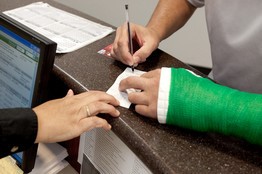Canada’s melting pot of health care can be a tricky one to navigate from province to province, with each establishing their own set of guidelines governed by separate bodies without a national connection.
So a physician practicing in Ontario may work under different rules than one in Manitoba, including things that aren’t covered by their provincial health care coverage. For example, an individual may be covered for prescription drugs until the age of 25 in Toronto, but stuck footing the bill as a 19-year-old in Calgary.
But for all their differences, the provinces seem to agree on many aspects of uninsured services — including a clinician’s right to bill their patients for these services based on the time and effort they take without remuneration from the government bodies.
Remember, though, that putting a bill in front of a patient who doesn’t quite understand that universal health care isn’t actually all-inclusive comes with potential complications. Some simple services that aren’t insured can carry recommended rates of as little as $18 according to the Ontario Medical Association’s guidelines, but medical reports for immigration and insurance certificates have much higher costs. In order to ensure a smooth resolution in these cases of potential controversy, physicians should keep some tips in mind:
- Consistency is key for any practice. Keep the same rules across the board and consider waiving fees in circumstances where payment may not be possible.
- Give new patients a welcome letter with rates for the most common uninsured services. Publish third-party fees on the practice website and make them available at the front desk and the waiting room.
- Tell a patient before performing uninsured service and offer them the chance to refuse it, rather than doing it and surprising them with a bill.
- Even when fees are waived, offer a ‘receipt’ for a chargeable service both to ensure the patients know the value of the service and the potential they may have to pay if circumstances change.
- Know the recommended billable hourly rate for uninsured services and bill by the minute for forms. Keep a record and be prepared to offer a time account for third-party services.
- Complete forms as close to when they arrive as possible.
- Accept all forms of electronic payment and ensure every staff member knows how to process them. This is better than billing the patient, paying postage and not collecting.
Know your uninsured services, whether you practice in Newfoundland, PEI, Nova Scotia, New Brunswick, Quebec, Ontario, Manitoba, Saskatchewan, Alberta and British Columbia.
2Ascribe Inc. is a medical transcription services agency located in Toronto, Ontario Canada, providing medical transcription services to physicians, clinics and other healthcare providers across Canada. Our medical transcriptionists take pride in the quality of your transcribed documents. WEBscribe is our client interface portal for document management. 2Ascribe continues to implement and develop technology to assist and improve the transcription process for physicians and other healthcare providers, and recently introduced AUTOfax. AUTOfax works within WEBscribe to automatically send faxes to referring physicians when a document is signed off by the healthcare professional. As a service to our clients and the healthcare industry, 2Ascribe offers articles of interest to physicians and other healthcare professionals, medical transcriptionists and office staff, as well as of general interest. Additional articles may be found at http://www.2ascribe.com.


